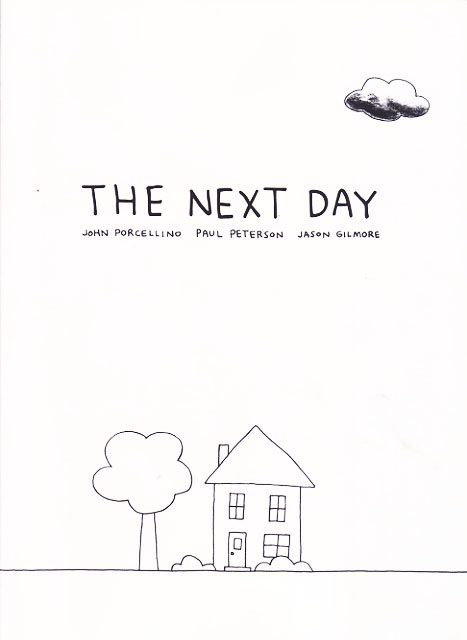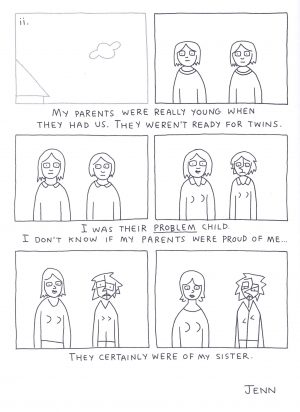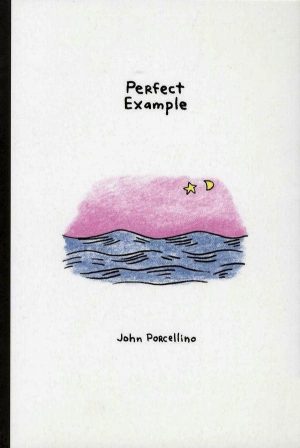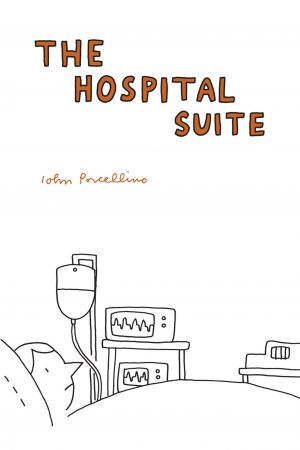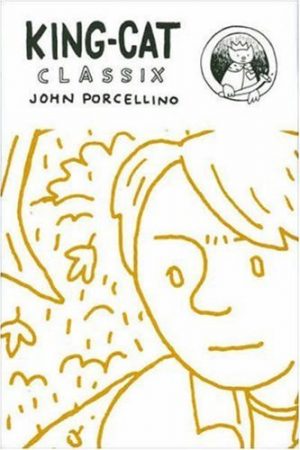Review by Frank Plowright
The back cover starkly informs us that every year a million people successfully commit suicide, and twenty times as many attempt it and survive, figures presumably correct for 2010. Those are breathtaking statistics, used as the basis for Paul Peterson and Jason Gilmore’s graphic novella following four people and asking what if they’d waited just one day more?
Peterson and Gilmore’s script is constructed from interviews with survivors, and illustrated by John Porcellino, whose own previous work has dealt intimately with illness and other disturbing topics. He applies the same narrative simplicity here, basic, distanced illustrations creating an everyman feeling suggesting that Chantel, Jenn, Ryan and Tina could be you, or someone you know. Despite the apparent simplicity of his cartooning there’s a complexity present as seen by Jenn’s disintegration on the sample art. Porcellino also letters, giving each person distinctive font, by extension a distinctive voice.
Those voices are of people who aren’t heard, or don’t speak out in the first place, which is their initial common thread rather than any background or childhood incidents, although two of the four experienced prolonged abuse. Gilmore and Peterson take the comments from interviews and apply them to fictional characters, yet from that construct four very real people. We can relate to them and feel sorry for them as their stories build towards their suicide attempt. More common threads manifest during adulthood, alcohol or substance abuse, placement in life-threatening situations, diagnosis of mental conditions and a lack of self-worth.
It might be short and simple, but The Next Day is a profoundly affecting book. What conclusions are to be drawn? It promotes an understanding and the realisation that not everyone’s going to tell you when something’s wrong. Unstated is that you might not be able to help directly, but listening as you’ve listened to the four interviewees here is a big start. There’s no deceit about The Next Day, no claims that surviving suicide led to life as a bowl of cherries, but it can be improved. “You are not meant to be dead” is Jenn’s closing statement.
